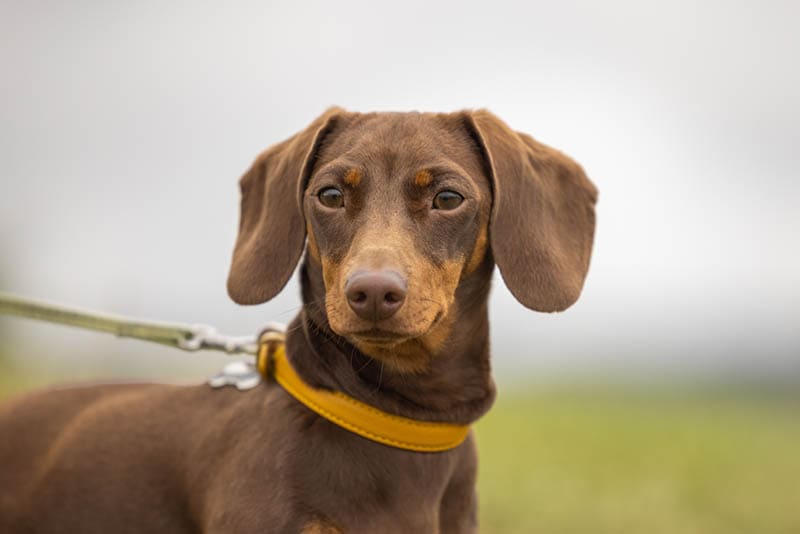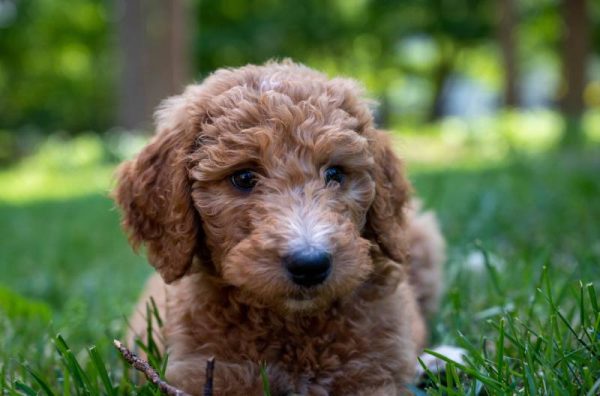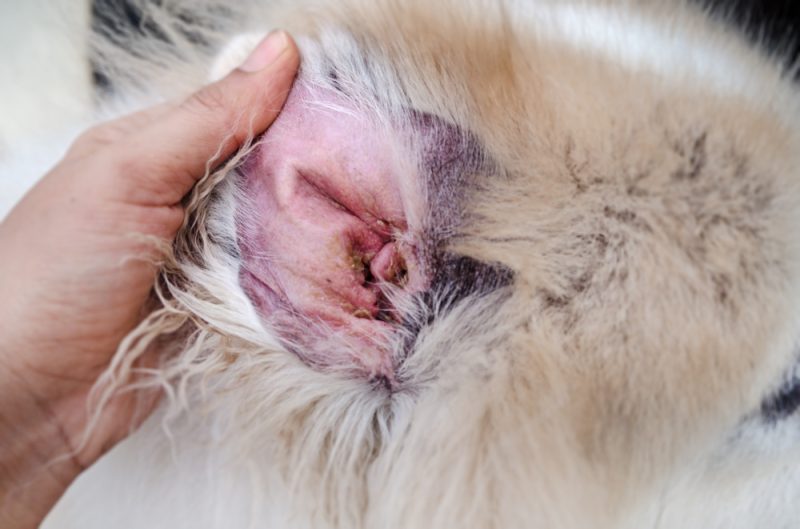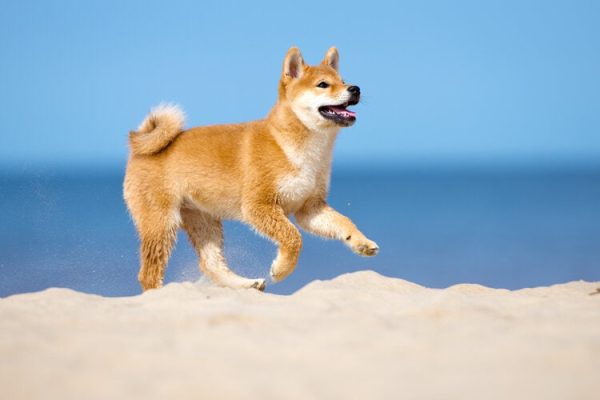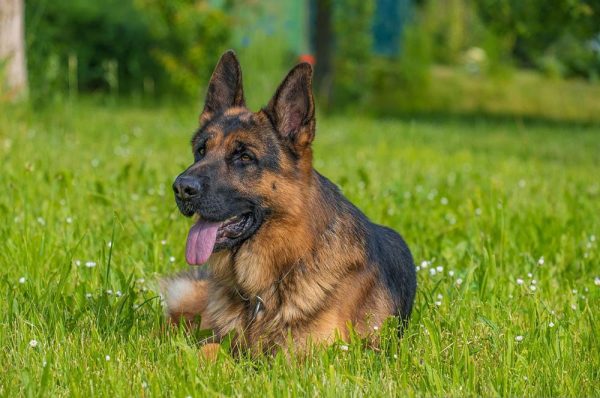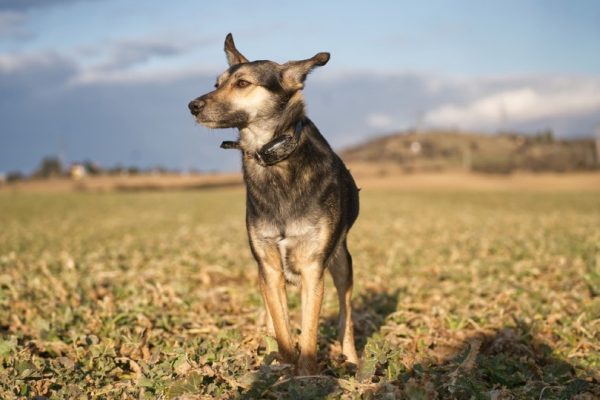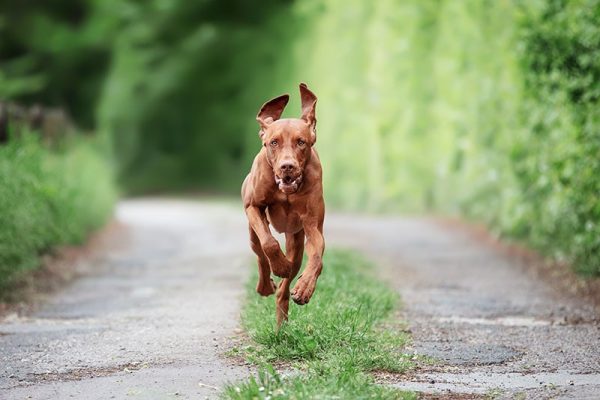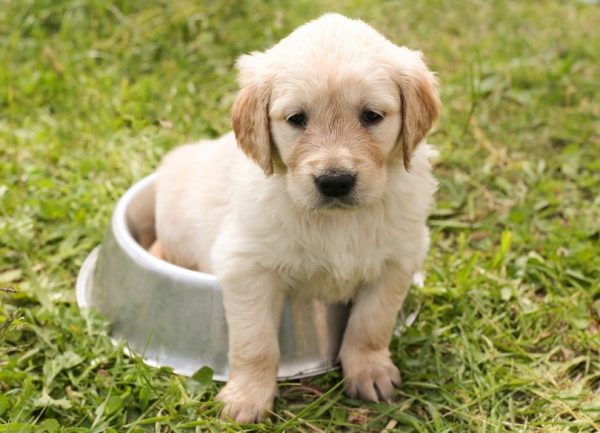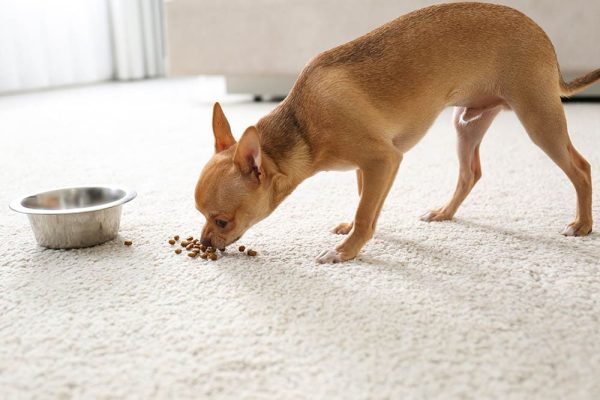Dachshunds are one of the most popular breeds, and for good reason. They’re loyal and loving and make great companions. Chocolate Dachshunds are adorable dogs, and they get their unique color from a genetic variation that gives their fur a lustrous, deep shade of brown. Their chocolate color can be solid or paired with either tan or cream. These colors can appear as a dapple or as highlights on their points—on their muzzles, paws, and sometimes above the eyes and across their chests.
Breed Overview
Height:
14–19 inches (standard); 12–15 inches (miniature)
Weight:
16–32 pounds (standard); under 11 pounds (miniature)
Lifespan:
12–16 years
Colors:
Solid red, black, and tan, red and tan, merle
Suitable for:
Families with older children
Temperament:
Devoted, playful, curious
As the perfect pups for any candy lover, Chocolate Dachshunds are loved for their shiny cocoa-brown fur. With their long bodies, short legs, and deep-colored fur, they’re sure to make you smile. They’re affectionate dogs but require thorough training to become well-behaved.
Chocolate Dachshund Characteristics

The Earliest Records of Chocolate Dachshunds in History
Europeans have used dogs to hunt badgers since the Middle Ages, but it wasn’t until the late 1600s that the Dachshund breed began to develop. France and Spain had badger-hunting dogs, but the German foresters and hunters were the first to breed Dachshunds consistently.
In German, the name Dachshund means “badger dog.” It is thought that hunters and fur traders who exchanged badger pelts for money originally bred Dachshunds to dive into the burrows of the reclusive, nocturnal badger.
If you have a hard time imagining today’s Dachshund going up against such ferocious animals, bear in mind that the original German Dachshund weighed 31 to 40 pounds and was much bigger than the modern full-sized dog.
Dachshunds were not just used for badgers but also for hunting rabbits and foxes and locating wounded deer. Packs of Dachshunds were even used to hunt fearsome prey such as wild boar and wolverines. Due to the lack of photos or paintings of Chocolate Dachshunds from this period, it is difficult to determine when this coloration first became available.
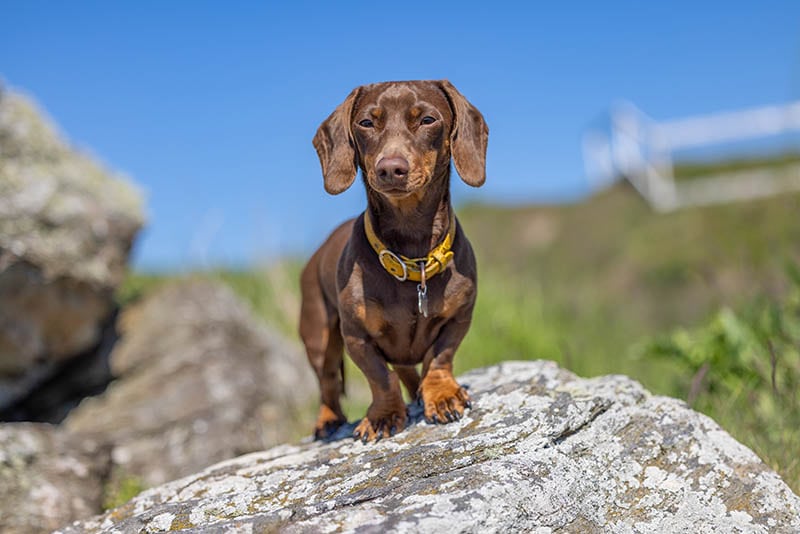
How Chocolate Dachshunds Gained Popularity
In Germany, the Dachshund remains a popular dog breed. Many people consider the Dachshund a symbol of Germany because they originated there. During the 19th and 20th centuries, cartoonists ridiculed Germany’s people using images of the breed. At the time of World War II, Dachshund owners in the United States were even viewed by some as Nazi sympathizers.
Despite that, the Dachshund has prospered and is enjoying a tremendous comeback. As the image of Germany was rehabilitated in the post-war period, the fortunes of the Dachshund also recovered. The Dachshund was chosen as the official mascot during the 1972 Summer Olympics in Munich, Germany.
Formal Recognition of Chocolate Dachshunds
The American Kennel Club holds the official registry of purebred dog pedigrees in the United States, and their stud book records all of the purebred dogs registered in the United States. It was in 1885 that the Dachshund was accepted into the Stud Book of the AKC for the first time.
During the last few decades, Dachshunds have become increasingly popular in the United States as people have grown to love the affectionate and independent little dogs. Dachshunds can be smooth-coated, long-haired, or wire-haired, but smooth-coated dogs have long been America’s favorite.
In the current day and age, Dachshunds are favored mainly by apartment dwellers and those living in cities and towns. In almost all major American cities, Dachshund clubs have been established to meet the needs of owners and their pets.
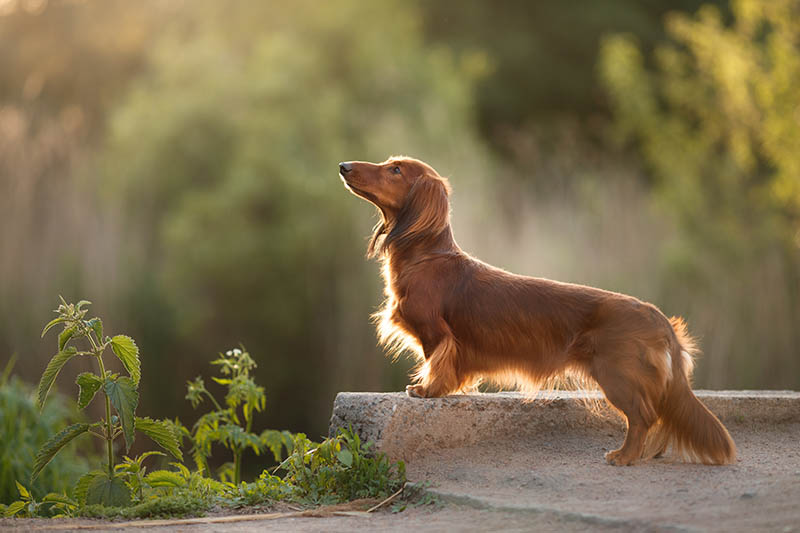

Top 4 Unique Facts About Chocolate Dachshunds
1. A Solid Chocolate Dachshund Is Accepted, But Not Standard
There are two types of chocolate Dachshunds: those with solid coats and those with mixed coats. AKC breed standards recognize colors such as chocolate and tan and chocolate and cream, but not solid chocolate. The color is acceptable to the AKC, but it is not a standard Dachshund color.
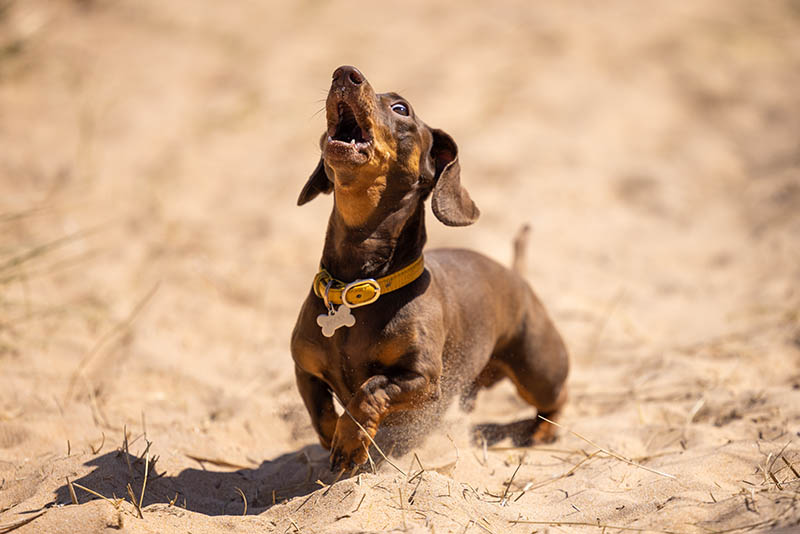
2. Chocolate Dachshunds Are Rarer
Those who have studied coat color genetics know that every color combination starts from one of two pigments. Without interaction with other genes, eumelanin is expressed in black, and pheomelanin is expressed in red. Eumelanin produces the chocolate color, but brown coats are recessive.
So, if your dog inherits the black coat gene (BB or Bb) from either parent, they won’t have a chocolate shade (bb). That is why a chocolate Dachshund is harder to find than a black one!
3. The Genetics of the Chocolate Dapple Dachshund
In addition to chocolate-colored Dachshunds, there are dapple patterns available as well. The merle gene in dogs triggers the chocolate dapple pattern and is highly sought after by owners. This pattern is characterized by chocolate-colored spots or splotches on a lighter coat of Dachshunds. Other colors and markings, such as tan or cream, can also characterize a merle dog.
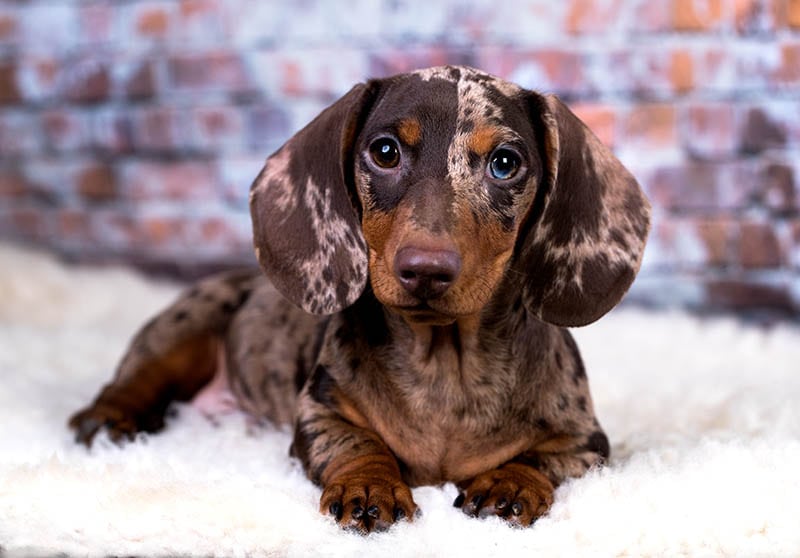
4. Chocolate Dachshunds Can Have 3 Coat Types
A Dachshund dog can have three different coats, all of which are chocolate, or at least chocolate with a mixture of other colors. Smooth-coat dogs have short, smooth, glossy coats. As their name implies, long-haired dachshunds have longer fur and require the most grooming. Their fur is usually soft and wavy. The wire-haired Dachshund has coarser fur than the other two types.

Does a Chocolate Dachshund Make a Good Pet?
A Chocolate Dachshund may be small, but they have a lot of personality. They are active and playful and will keep you entertained for hours. But before you bring one home, there are a few things you should know. Chocolate Dachshunds were bred to hunt, so they have a strong prey drive.
They may not be the best choice if you have other small pets in your home. Some also tend to bark a lot, so if you’re looking for a quiet dog, this isn’t the breed for you. If you’re willing to put in the time to train your dog and give them plenty of exercise, a Chocolate Dachshund can make a great pet. They are loving and loyal and will quickly become a cherished member of your family.

Conclusion
The Chocolate Dachshund is a unique and interesting variation of the Dachshund breed. They have a rich history and are known for their loyalty and intelligence. They make great companions and are relatively easy to care for. If you’re looking for a fun-loving, loyal dog, the chocolate Dachshund may be the perfect breed!
When you are ready to add a chocolate Dachshund to your family, be sure to do your research and find a reputable breeder.
Featured Image Credit: David Pecheux, Shutterstock
